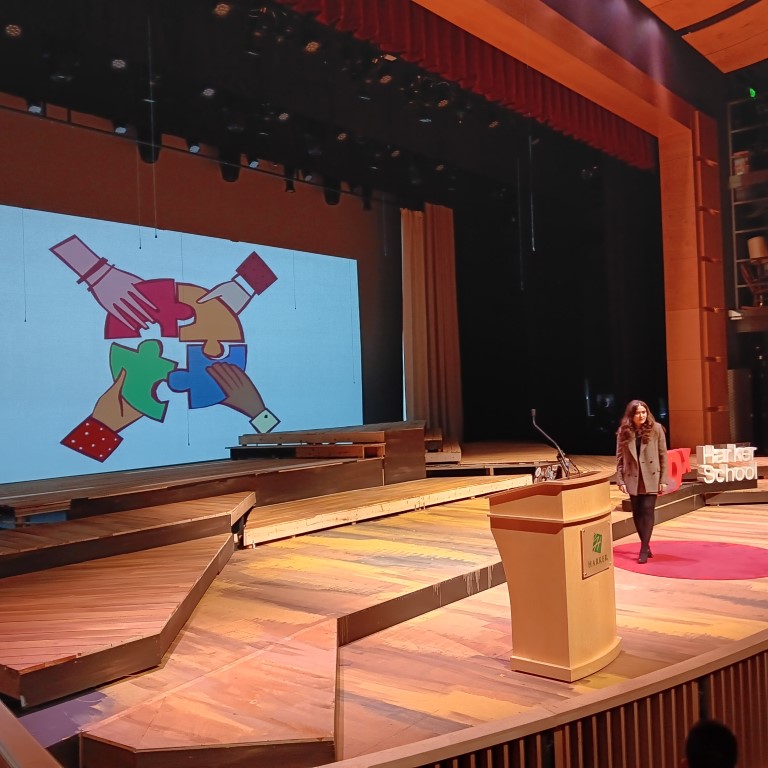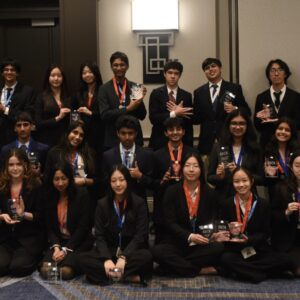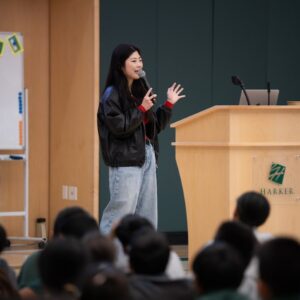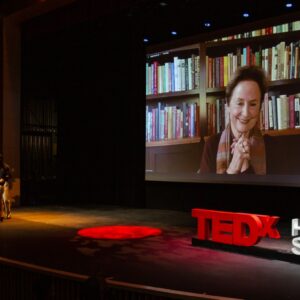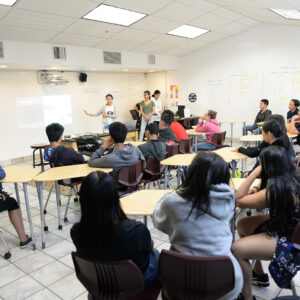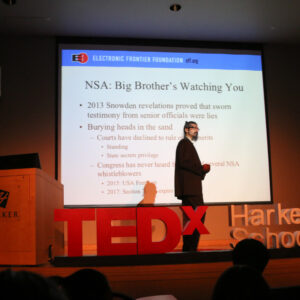On Friday, students of Harker’s business and entrepreneurship program hosted the 2023 installment of TEDx Harker School, inviting three speakers to share their experiences and insights on personal success with Harker students at the Rothschild Performing Arts Center’s Patil Theater.
Don Box, a Seattle-based engineer and musician whose long career included working on Visual Studio, Windows and the Xbox One at Microsoft, spoke on the importance of learning how to accept suffering as a necessary step in achieving one’s goals and how to be intentional about it. “Intentional suffering is about deliberately building discomfort into the system,” he said. “And that discomfort tends to create an environment for creativity, an environment for creation, an environment for achievement.”
The next speaker, Deepti Gupta, shared her journey of growing up in a small town in northern India, commuting a total of four hours to and from school each day. She nevertheless went on to earn an engineering degree and MBA. Gupta discussed how resilience can be a crucial asset in surmounting challenges in one’s career. “Resilience is the ability to bridge the gap between adversity and achievement. It proves that success is not merely an absence of struggles,” she said. “In fact, success is the ability to overcome struggles.”
This year’s student speaker was Rhiannon Sikand, who spoke on the psychological concept of personal narratives and the role they play in the formation of people’s identities, helping reconcile the inconsistencies and contradictions of the various labels applied to them by others as well as themselves. “This means thinking of your life not as a collection of labels, but rather as a story,” she said. “And these stories are more than just labels. They integrate the events of our life, the experiences that we’ve had that make us who we are into one long story of the self that has a defined narrative arc.”
While there are some caveats in this way of thinking – such as the danger in thinking of oneself as the “main character” of their own story and the difficulty of changing narratives that involve false positive or negative perspectives – learning how to involve other people into their stories makes people “much more likely to have one that authentically and realistically portrays where you are,” she said.
